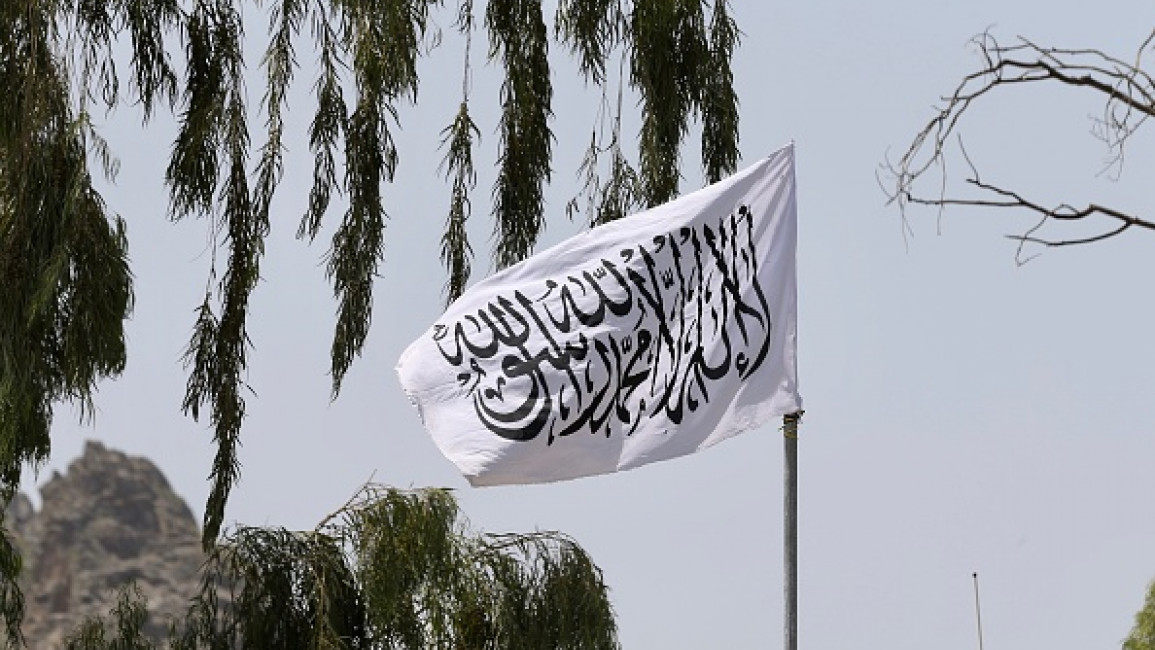Image purportedly shows Pakistani Taliban chief in Kabul amid spate of TTP attacks
A prominent Pakistani journalist has shared an image online allegedly showing the leader of the Pakistani Taliban in Kabul.
In a tweet, Faizullah Khan said sources claimed that the image of Noor Wali Mehsud, the so-called "emir" of the Tehreek-e-Taliban (TTP), sat on a couch with an unidentified individual indicated that the wanted militant was in the Afghan capital.
It was also shared by Abdul Sayed, an independent researcher and analyst, who added that "credible sources" had told him that Mehsud had now moved to Kabul after the Taliban takeover.
The New Arab has been unable to verify the image and the claims.
It comes after some analysts said they believe the Taliban’s victory in Afghanistan will allow an array of militant groups to thrive in the war-torn country.
Comprising of several small groups in Pakistan’s tribal areas and the North-Western Frontier Province, the TTP has fought a brutal insurgency against the Pakistani state.
A well-informed Pakistani journalist @FaizullahSwati shares the Pakistani Taliban (TTP) emir, Mufti Noor Wali Mehsud's picture claiming that he is in Kabul. Some credible sources also told me recently that the TTP emir has moved to Kabul after it fell to the Afghan Taliban. https://t.co/xI6ULr0sin
— Ab. Sayed ترمذی سادات (@abdsayedd) August 25, 2021
In recent years, the group was in decline over internal divisions, according to Dr Antoni Giustozzi, an expert on the Taliban and research fellow at the Royal United Services Institute. By 2018, TTP's leadership was thought to have been unable to muster strength exceeding 2,000 fighters.
But its fortunes changed with the arrival of Noor Wali Mehsud, the group's most "intellectual" leader, who oversaw the unification of most of its splinter groups.
Mehsud allegedly took advice from Al-Qaeda to end the policy of indiscriminate attacks targeting civilians. The TTP under his leadership also changed its tactic away from bringing down the Pakistani state and toward establishing independence for Pakistan's tribal areas.
In 2020, the group carried out 120 attacks, according to Dr Giustozzi. In July, amid the Afghan Taliban's sweeping offensive in neighbouring Afghanistan, the group launched its own offensive in Pakistan's Waziristan, carrying out 26 attacks.
The group is also believed to have recently removed fighters from eastern Afghanistan and toward the southeast, after being hosted by the Taliban's hard-line Haqqani Network. It participated in attacks against Afghan government forces, including in the takeover of several districts in Kunar.
Pakistan has so far refrained from officially recognising the Taliban as Afghanistan’s legitimate rulers, a decision believed to be in part fuelled by Islamabad's concern that the movement is providing sanctuary for TTP fighters.
This is despite the strong ties between Islamabad's spy agency and elements of the Afghan Taliban, including the Haqqani Network.


![President Pezeshkian has denounced Israel's attacks on Lebanon [Getty]](/sites/default/files/styles/image_684x385/public/2173482924.jpeg?h=a5f2f23a&itok=q3evVtko)



 Follow the Middle East's top stories in English at The New Arab on Google News
Follow the Middle East's top stories in English at The New Arab on Google News


